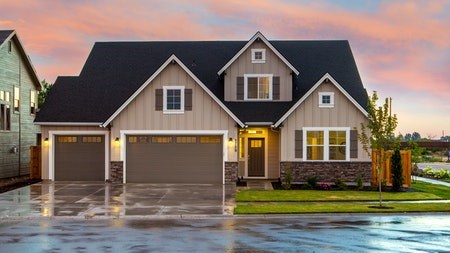It is now clear that many of the changes in working, commuting and learning patterns that have come about because of the Covid-19 pandemic will become permanent adjustments for a great number of families – and will probably also bring about some rapid changes in what home buyers perceive as priority features.
“We know that lockdowns and strict social distancing requirements have already caused many buyers to put a premium on having access to outdoor spaces, for example, from gardens to terraces, verandas and even balconies,” says Berry Everitt, CEO of the Chas Everitt International property group.
“Taking this further, many buyers have also already realised that if they are now always going to be working from home (WFH), their choice of home is no longer location-dependent. They are free to move away from cities to more rural locations and prioritise cleaner air, beautiful views and a better quality of life. But there could be even bigger shifts soon in the type of home layout that buyers prefer.
“When families are all at home at the same time, as has been the case for many in the past year, open-plan arrangements often make it really hard to find any personal space to work, make uninterrupted calls, study, do homework or simply relax – with the result that many buyers are now seeking homes that are much more ‘traditional’, in that they have multiple separate living areas as well as studies and /or outbuildings that can be converted into home offices.”
He says that homes with bigger bedrooms for children, or an extra room that can be used as a “classroom”, are also gaining popularity because parents have seen that children also need comfortable, quiet spaces away from distractions to study and do homework, especially if they are being taught online.
“And with an increasing number of learning institutions now converting to full-time online tuition, we expect that many of the buyers who used to be willing pay a premium to live near the most highly-regarded schools will now be able to look further afield to more affordable areas – and perhaps spend some of what they save on the purchase price to make alterations to accommodate digital learning and working.”
Writing in the Property Signposts newsletter, Everitt also notes that working from home and using much more power and water to create a comfortable working and living environment for the whole family is also making homeowners and buyers more aware of the energy efficiency of their properties – or lack of it.
“Consequently, ‘green’ features that can help keep utility costs down are really coming to the fore now. As various local authorities work to become independent of Eskom, we also expect more home buyers to become interested in producing their own energy using solar panels or other renewables and in potentially earning additional income by feeding any surplus back into the grid.”
The large-scale shift to WFH could also bring many of the environmental considerations that are currently associated with achieving higher productivity in office buildings to bear on residential properties, he says. “These include indoor air quality, noise pollution, and visual comfort, and could in the near future prompt buyers to seek out homes with features such as high-performance windows and increased insulation, which would in turn lead to further reduced CO2 emissions.
“Meanwhile, many families that previously needed two vehicles are already down to one or none – and converting their garages into home offices or home gyms and private ‘wellness rooms’, in line with the increased focus on maintaining personal health and exercise routines and uncertain access to public gyms.
“And finally, food shortages related to the pandemic have really boosted interest in self-sufficiency, ‘garden farms’ and the reduction of food miles, so we see rising interest now among suburban buyers in properties with established vegetable-growing areas and irrigation systems.”




